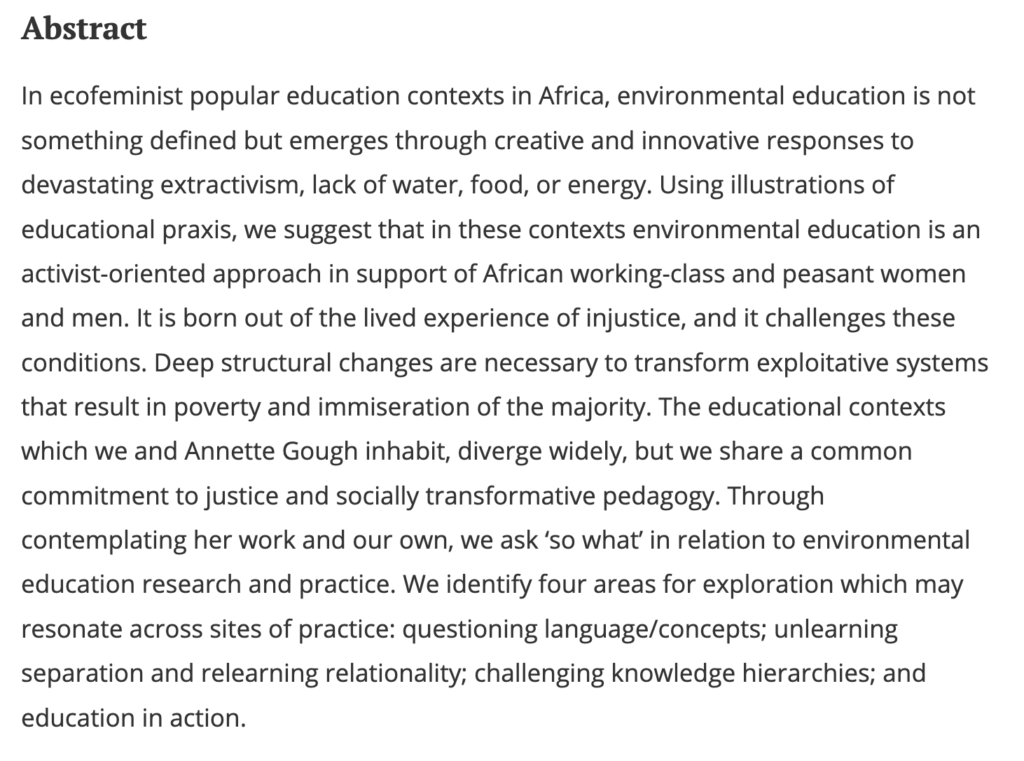In ecofeminist popular education contexts in Africa, environmental education is not something defined but emerges through creative and innovative responses to devastating extractivism, lack of water, food, or energy. Using illustrations of educational praxis, we suggest that in these contexts environmental education is an activist-oriented approach in support of African working-class and peasant women and men. It is born out of the lived experience of injustice, and it challenges these conditions. Deep structural changes are necessary to transform exploitative systems that result in poverty and immiseration of the majority. The educational contexts which we and Annette Gough inhabit, diverge widely, but we share a common commitment to justice and socially transformative pedagogy. Through contemplating her work and our own, we ask ‘so what’ in relation to environmental education research and practice.

